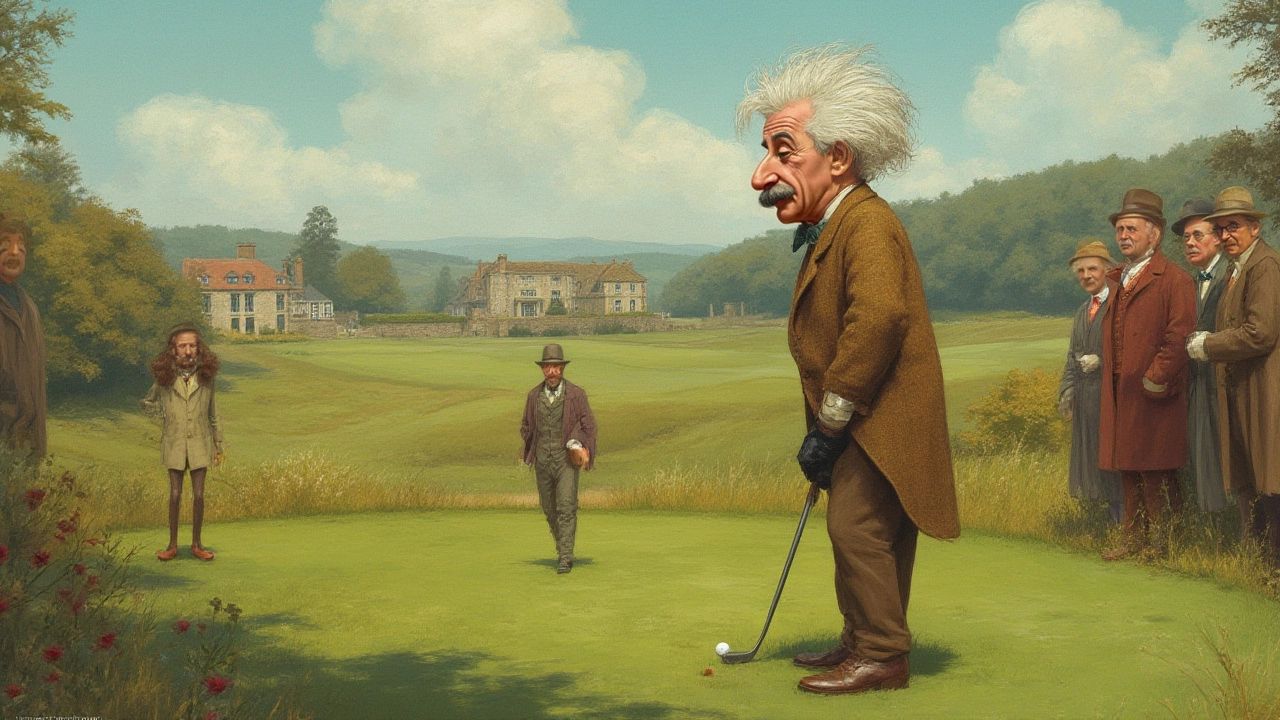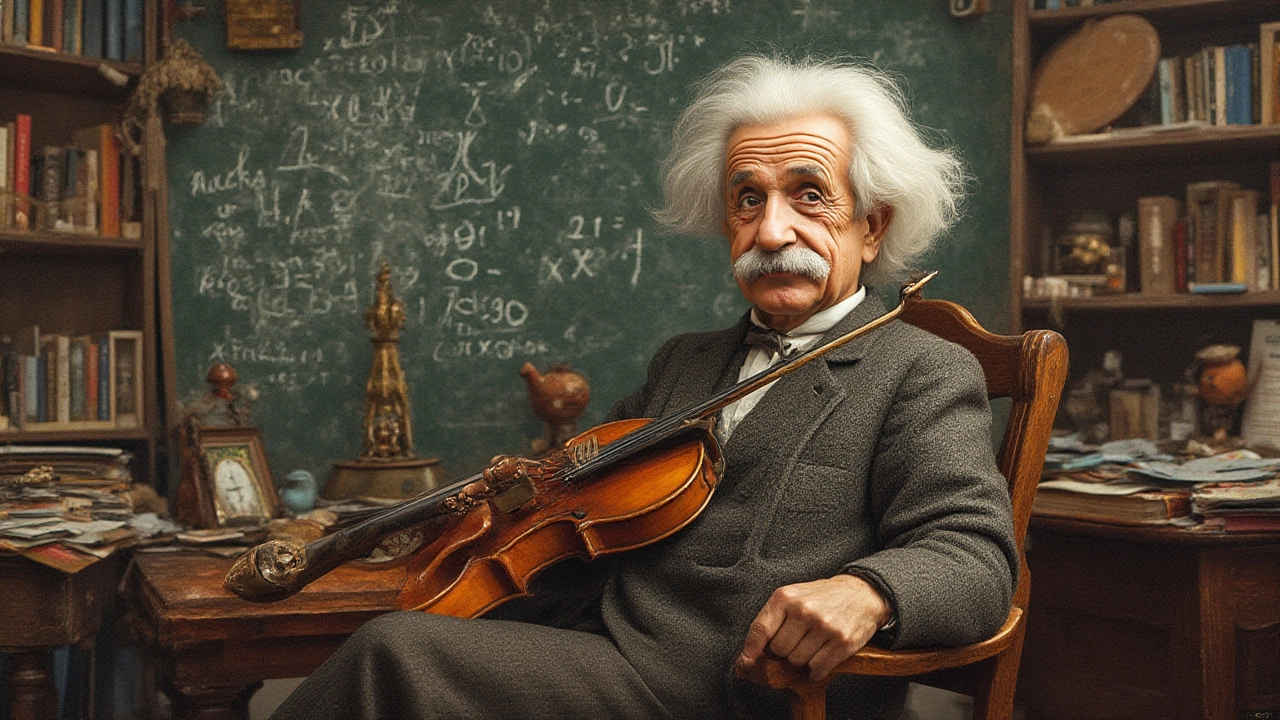Did Albert Einstein Ever Play Golf? The Surprising Truth Behind Einstein and Golf

If scientists had creative golf swings, physicists might top the leaderboards. Albert Einstein—possibly the most iconic thinker of the last century—could bend the laws of physics, but could he successfully swing a nine-iron? Rumors swirl, and it’s weird to imagine the man behind E=mc2 on the green, pondering gravity on the fairway. While there are endless tales about Einstein’s quirks, the truth about his relationship with golf is stranger and a bit funnier than most people expect.
The Real Story: Did Albert Einstein Play Golf?
Let’s cut through the folklore. Did Einstein ever seriously play golf? Mountains of biographies, old interviews, and even his family’s private letters reveal almost nothing about golf. That’s right—there isn’t a single photograph, diary entry, or story from friends and biographers that places Einstein on a golf course. It’s not for lack of evidence either. The man loved his walks, his boat, and a game of violin after dinner. But golf, as a sport or pastime, just didn’t land in his world—or his diaries. His favorite forms of relaxation were sailing (he wasn’t very good at it, but he loved it anyway), bicycle rides, and, occasionally, walks with friends. He also loved his pipe, and sometimes just to sit in silence and think—he famously said, “A calm and modest life brings more happiness than the pursuit of success combined with constant restlessness.” So where did people get the idea that Einstein played golf? The myth probably grows from the fact that lots of 20th-century intellectuals enjoyed playing a few holes. C.S. Lewis, Winston Churchill, and others swung clubs to relax. Some even claimed the patience golf teaches would be perfect for brainy types. But Einstein? No cigar. Not only was he not into it; he’s quoted (with a touch of philosophical humor) as calling golf “a pointless greenside walk ruined by a small white ball,” though there’s no proof he ever actually said that.
Why Would Golf Not Appeal to Einstein?
Golf is all about patience, precision, and a love of repetition—qualities Einstein had in spades as a physicist. Still, golf never made it onto his list of hobbies. The reasons might make you laugh: first, he honestly could not stand organized sports. He found them tedious and a little silly. In a world where you could ponder the universe, why would you spend all day chasing a tiny ball? He even had a hard time sitting still for card games. And, as far as we know, he never even tried mini-golf. Another factor is time. Einstein’s calendar was brutal, especially during his Berlin years and after he moved to Princeton in the 1930s. Between teaching, public lectures, endless letters, travel, and a massive pile of scientific papers, squeezing in four hours for a round of golf seemed not only impossible, but pointless to him. What little free time Einstein had, he guarded fiercely for sailing lost on a windy lake or reading philosophy. Add to this Einstein’s not-so-great hand-eye coordination—his friends joked about how he could barely steer a boat straight—and you get someone not exactly destined for a golfer’s trophy case.

The Origins of the Einstein Golf Myth
The idea of Einstein teeing off may have started because so many of his fellow intellectuals were avid golfers. In the early 20th century, golf was booming. It had a reputation as a game for the brainy, the British, and the rich. Scientists and professors had club memberships in Oxford, Cambridge, and Ivy League circles. Some classic photos, like physicist Max Planck or argument-loving politicians, actually playing golf, probably got attached to Einstein by mistake. The myth picked up steam partly because Einstein himself was so often fascinated by the physics of everyday objects—he even wrote about how violin strings vibrate—but he never once wrote about balls on greens. Another origin might be America’s golf obsession. When Einstein arrived in Princeton, New Jersey, in 1933, the press swarmed him. Since the city was home to the famed Springdale Golf Course, reporters probably assumed he would play there, and so the rumor caught on. Plus, the image of a brilliant professor puzzling over a baffling sand trap or calculating angles on a green makes for great cartoon fodder. In truth, Einstein might have chuckled at the cartoon but handed his club right back to the caddie.
Einstein’s Actual Hobbies and the Science of Golf
No golf for Einstein, but his favorite hobbies actually offer a weird and fascinating overlap with what makes golf tick. For example, Einstein’s love of sailing—despite not being great at it—echoes golf’s odd charm for amateurs. You don’t have to be great to enjoy yourself. Einstein was obsessed with figuring things out, not with competing or collecting trophies. He often said that he sailed to get lost, not to win. Likewise, most golfers today say they’re chasing fun, fresh air, and a good walk—not a perfect score. If Einstein had ever played, he probably would have turned the golf course into a playground for physics. Think about it: golf is all about the laws of motion—angle, force, trajectory, friction on grass, and the notorious effect of wind. Knowing how to calculate those variables could make anyone a much better golfer. Here’s a fun breakdown of golf-related physics facts Einstein might have liked:
| Golf Physics Principle | Description | Relevance to Einstein |
|---|---|---|
| Ball Trajectory | Path determined by launch angle, speed, spin, and wind | Directly tied to his work on motion and relativity |
| Club Force Impact | The more force, the farther the ball flies—up to a point | Classic Newtonian mechanics—Einstein’s starting point |
| Friction and Grass | Friction slows or redirects the ball, especially on greens | He loved small-scale phenomena like this |
| Spin | Backspin and side spin change travel and bounce | He would have adored the equations |
Looking for tips Einstein might approve of if he ever touched a club? Brush up on your physics; you don’t need complex math. Next time you stand over a tricky putt, think about friction or wind speed. Ask yourself: “What would Einstein predict?” It’s a practical way to channel a little genius into your next round, even if he never actually played. So the next time someone tries to impress you with a wild rumor about Einstein and golf, you can smile and set the record straight. He was a genius with equations, but when it comes to golf, he was perfectly happy leaving the clubs to everyone else.
